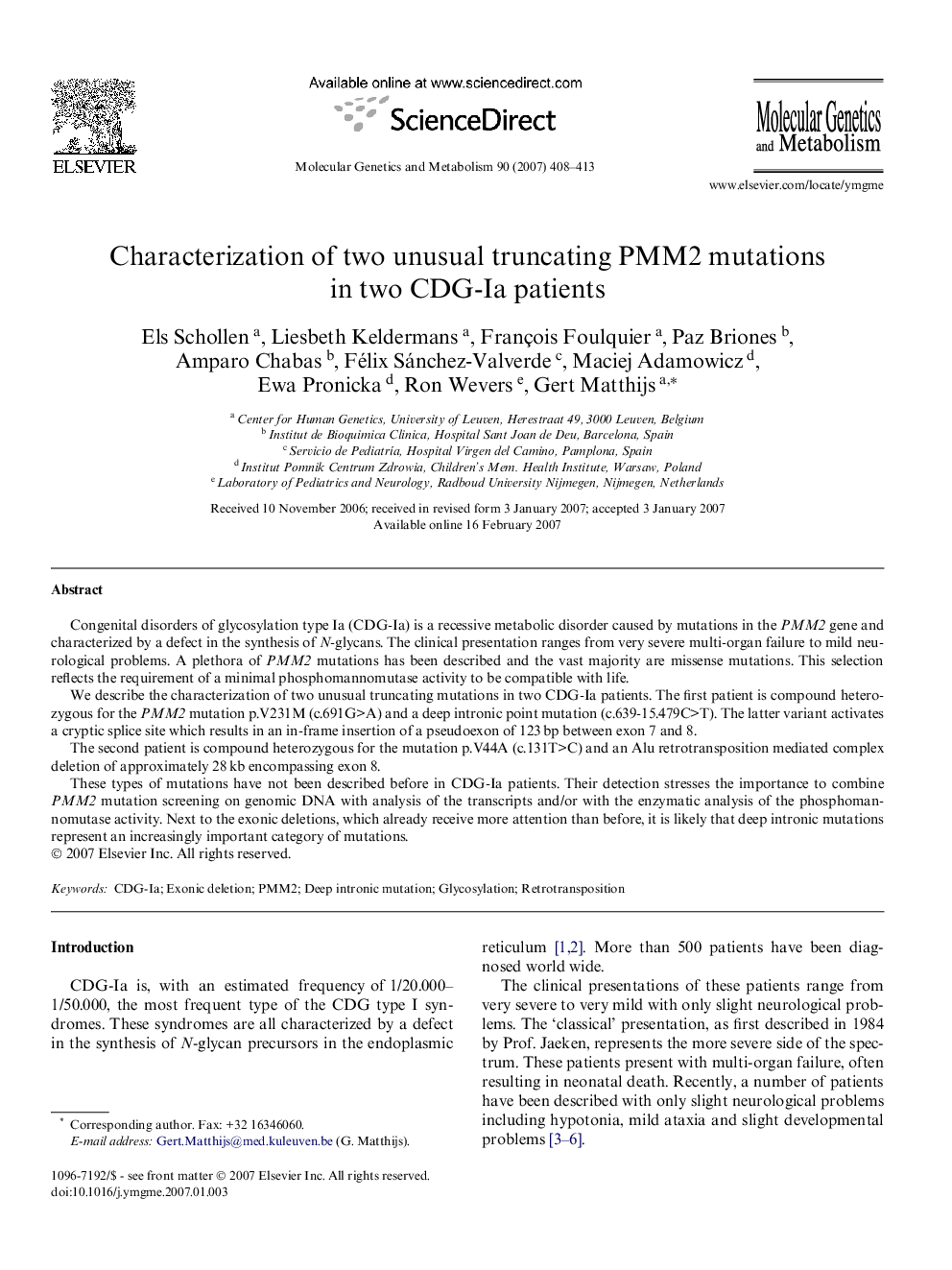| Article ID | Journal | Published Year | Pages | File Type |
|---|---|---|---|---|
| 2000321 | Molecular Genetics and Metabolism | 2007 | 6 Pages |
Congenital disorders of glycosylation type Ia (CDG-Ia) is a recessive metabolic disorder caused by mutations in the PMM2 gene and characterized by a defect in the synthesis of N-glycans. The clinical presentation ranges from very severe multi-organ failure to mild neurological problems. A plethora of PMM2 mutations has been described and the vast majority are missense mutations. This selection reflects the requirement of a minimal phosphomannomutase activity to be compatible with life.We describe the characterization of two unusual truncating mutations in two CDG-Ia patients. The first patient is compound heterozygous for the PMM2 mutation p.V231M (c.691G>A) and a deep intronic point mutation (c.639-15.479C>T). The latter variant activates a cryptic splice site which results in an in-frame insertion of a pseudoexon of 123 bp between exon 7 and 8.The second patient is compound heterozygous for the mutation p.V44A (c.131T>C) and an Alu retrotransposition mediated complex deletion of approximately 28 kb encompassing exon 8.These types of mutations have not been described before in CDG-Ia patients. Their detection stresses the importance to combine PMM2 mutation screening on genomic DNA with analysis of the transcripts and/or with the enzymatic analysis of the phosphomannomutase activity. Next to the exonic deletions, which already receive more attention than before, it is likely that deep intronic mutations represent an increasingly important category of mutations.
